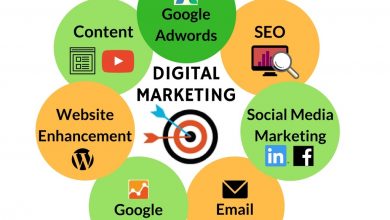Empowering Health and Healing: Unveiling the Benefits of Healthcare Software

In the age of technological advancement, every facet of our lives has been touched by innovation, and healthcare is no exception. Healthcare software has emerged as a game-changing force, revolutionizing patient care, administrative processes, and overall healthcare management. From improving patient outcomes to streamlining operations, the benefits of healthcare software are extensive and profound.
The Healthcare Software Revolution

Source: https://lasoft.org/
Healthcare software encompasses a wide range of applications designed to enhance the efficiency, accuracy, and accessibility of healthcare services. From electronic health records (EHR) systems to telemedicine platforms, the digitalization of healthcare processes has redefined the way medical professionals, patients, and administrators interact with the healthcare ecosystem.
1. Enhanced Patient Care and Outcomes
At the heart of healthcare software lies a commitment to improving patient care and outcomes. Electronic health records consolidate patient information, enabling healthcare providers to access comprehensive medical histories, medications, and treatment plans in real time. This leads to more informed decision-making and better coordination among medical teams, resulting in higher-quality care.
Telemedicine solutions have been especially transformative, allowing patients to receive medical consultations and advice remotely. This is particularly beneficial for individuals in rural or underserved areas, reducing the need for travel and ensuring timely access to healthcare expertise.
2. Streamlined Administrative Processes
Healthcare software also simplifies administrative tasks that were once labor-intensive. Appointment scheduling, billing, and insurance claims processing are now digitized, minimizing errors and reducing paperwork. This efficiency translates to shorter wait times, improved patient satisfaction, and more time for medical professionals to focus on patient care.
3. Data-Driven Insights
Healthcare software solutions generate vast amounts of data, which, when analyzed, provide valuable insights into patient trends, treatment efficacy, and operational efficiency. Data analytics enable medical facilities to make informed decisions, identify areas for improvement, and implement evidence-based practices that lead to better patient outcomes.
4. Increased Patient Engagement
Patient engagement is crucial for better healthcare outcomes. Patient portals and mobile apps empower individuals to take an active role in managing their health. From accessing test results to scheduling appointments and tracking medications, patients can actively participate in their care, leading to improved adherence to treatment plans.
5. Enhanced Communication and Collaboration
Collaboration among healthcare providers is vital for comprehensive patient care. Healthcare software fosters seamless communication among medical teams, allowing for real-time updates, sharing of diagnostic images, and consultations regardless of physical location. This level of collaboration leads to more accurate diagnoses and faster treatment decisions.
Custom Healthcare Software Development: Tailoring Solutions to Needs
While off-the-shelf healthcare software offers significant benefits, custom healthcare software development takes innovation a step further. These tailored solutions are designed to meet the unique needs and challenges of specific healthcare providers, ensuring maximum impact and efficiency.
1. Addressing Specific Workflow Challenges
Healthcare facilities have distinct workflows and processes that may not be fully addressed by generic software. Custom solutions can be designed to seamlessly integrate with existing systems, align with established workflows, and address specific pain points. This leads to smoother transitions and quicker adoption by staff.
2. Compliance and Security
Healthcare is a heavily regulated industry with strict privacy and security requirements. Custom healthcare software can be developed with compliance in mind, ensuring that patient data remains secure and adheres to regulatory standards. This level of security is essential for building trust with patients and avoiding potential legal issues.
3. Scalability and Future-Proofing
Custom healthcare software can be designed with scalability in mind, accommodating the growth and evolving needs of a healthcare facility. As technologies and requirements change, these solutions can be easily adapted or expanded to accommodate new functionalities without disrupting operations.
4. Personalized Patient Experiences
Custom solutions enable healthcare providers to offer personalized patient experiences. Whether it’s creating patient portals with tailored content or developing applications that address specific medical conditions, custom healthcare software enhances patient engagement and satisfaction.
5. Integration with Emerging Technologies
As emerging technologies like artificial intelligence, IoT, and wearable devices make their way into healthcare, custom software can be developed to integrate seamlessly with these innovations. This ensures that healthcare facilities remain at the forefront of technological advancements.
Conclusion
Healthcare software is more than a tool; it’s a catalyst for transformative change within the healthcare industry. The benefits are far-reaching, impacting patient care, administrative efficiency, data-driven insights, communication, and collaboration. The adoption of healthcare software leads to a more patient-centric approach to healthcare, where individuals are empowered to actively participate in their well-being.
Custom healthcare software development takes this innovation to a higher level, offering tailored solutions that align with the unique needs of healthcare providers. As the healthcare landscape continues to evolve, these solutions pave the way for personalized care, enhanced efficiency, and the integration of emerging technologies that will shape the future of healthcare.
In a world where the demand for quality healthcare is ever-growing, the role of healthcare software and its potential for customization stands as a beacon of hope for improved patient outcomes, streamlined operations, and a more connected and efficient healthcare ecosystem.
Read also: How Artificial Intelligence Can Impact Human Sleep





